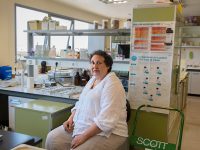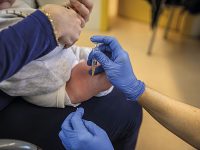Although a One Health perspective has, in one way or another, been around at least since the time of Hippocrates, the term itself was coined by William Karesh in a 2003 The Washington Post article. Since that time, the concept has been discussed, applied, and elaborated in numerous ways. Little, however, has done more to make the concept relevant to global concerns than the Covid-19 pandemic (the third major coronavirus to emerge in this millennium, including SARS and MERS). As is evident in the label, One Health essentially «is an intersectoral and interdisciplinary approach that focuses on where the health of humans, animals and environments or ecosystems converge» (Soares, 2020, p. 652). Although some who write on One Health have argued about definitional issues, such argumentation is not particularly helpful to our discussion at present.
Work on One Health has been conducted and advocated by veterinarians, physicians and many other human healthcare providers, environmental scientists, public health professionals, policymakers, geographers, ecologists, economists, and other social scientists. All health (in the broadest sense of the word) issues are germane to a One Health perspective, but fundamental concerns of emerging diseases, zoonoses, environment and climate change, conservation (including watershed), agriculture biosecurity, health disparities, crisis management, and antimicrobial resistance (AMR) have been especially evident in the discussions and literature related to One Health in recent years. None of these issues can be understood separately; they all must be studied and approached from a broader, One Health perspective using mixed-methods research. Application of the concepts of resilience and complexity and interdependence of parts requires a systemic, syndemic and social-ecological point of view with an awareness of feedback loops. Fields such as systems biology and complexity science also recognize such interdependence. Structural determinants of health and other factors must be considered for a full understanding. A One Health application is necessary not only to adequately but to ethically respond to the current and future crises and, it is hoped, to help prevent forthcoming catastrophes. A strong business argument can also be built that a One Health perspective is more economically viable than the siloed model presently used throughout most of the world (Grace, 2014). Indeed, epidemiological-economic models have already effectively applied a One Health approach (Canali et al., 2020). The present issue of Metode is designed to facilitate implementation of this concept, as well as future research on it. Community-based involvement but with a global perspective is mandatory to effective understanding and application.
The articles within the issue focus upon contributions that have and can be made by social science research, studies of zoonoses and antimicrobial resistance both in humans and wildlife, and vaccination research. Our focus on vaccination will emphasize not the science or production of vaccines but the many problems that are seemingly inherent in the process of vaccination uptake. Interrelationships among human and animal vaccination are apparent from a One Health perspective. All the pieces make evident not just that the concepts noted above do interrelate, but how they do so. It is hoped that this agenda will guide future application of a One Health approach to understanding of our one world.
References
Canali, M., Aragrande, M., Angheben,A., Capelli, G., Drigo, M., Gobbi, F., Tamarozzi, F., & Cassini, R. (2020). Epidemiologic-economic models and the One Health paradigm: Echinococcosis and leishmaniasis, case studies in Veneto region, Northeastern Italy. One Health, 9, 100115. https://doi.org/10.1016/j.onehlt.2019.100115
Grace, D. (2014) The business case for One Health. Onderstepoort Journal of Veterinary Research, 81(2), 725. https://dx.doi.org/10.4102/ojvr.v81i2.725
Soares, A. (2020). William Karesh: Championing «One Health». Bulletin of the World Health Organization, 98(10), 652–653. https://doi.org/10.2471/BLT.20.031020





